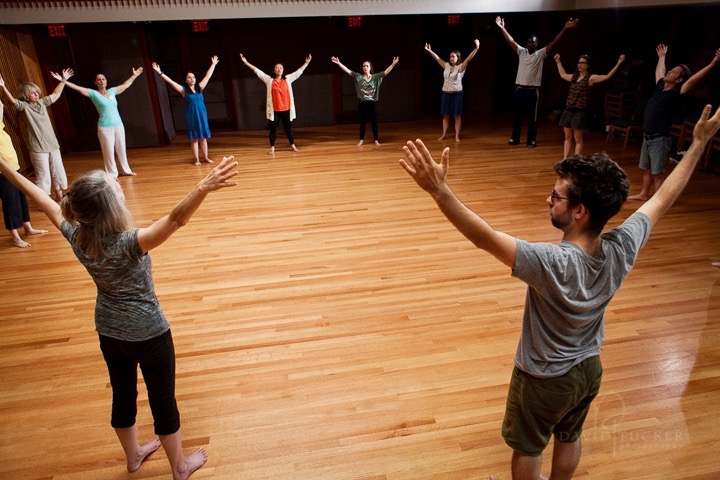
Undoing Racism, March 2021
The monthly conversations on “Undoing Racism in Music Education” have continued. We’ve had three conversations since the last blogpost: one in December, one in January and one in February. I wish I could have posted something each month, but time has been speeding by faster than I expected.
Our conversations have consistently been fruitful. We’ve discussed readings and videos, shared personal experiences, and sat in silence. I find these moments of silence particularly inviting, though a little awkward.
Part of our February discussion revolved around an article on “characteristics of white supremacy culture that show up in organizations,” as well as antidotes to white supremacy culture, by Tema Okun, from “Dismantling Racism: A Workbook for Social Change Groups” by Kenneth Jones and Tema Okun.
We spent some time on the first characteristic on the list, “perfectionism:” From the article:
[The Characteristic of] Perfectionism
- little appreciation expressed among people for the work that others are doing; appreciation that is expressed usually directed to those who get most of the credit anyway
- more common is to point out either how the person or work is inadequate
- or even more common, to talk to others about the inadequacies of a person or their work without ever talking directly to them
- mistakes are seen as personal, i.e. they reflect badly on the person making them as opposed to being seen for what they are — mistakes
- making a mistake is confused with being a mistake, doing wrong with being wrong
- little time, energy, or money put into reflection or identifying lessons learned that can improve practice, in other words little or no learning from mistakes
- tendency to identify what ís wrong; little ability to identify, name, and appreciate what is right
Antidotes: develop a culture of appreciation, where the organization takes time to make sure that people’s work and efforts are appreciated; develop a learning organization, where it is expected that everyone will make mistakes and those mistakes offer opportunities for learning; create an environment where people can recognize that mistakes sometimes lead to positive results; separate the person from the mistake; when offering feedback, always speak to the things that went well before offering criticism; ask people to offer specific suggestions for how to do things differently when offering criticism
During our conversation, several participants reported on anti-racism activism that they were participating in outside of the DSA. It is heartening to hear about what other organizations are doing to address racism, diversity and inclusion. Judy Bond, a founding member of the Alliance for Active Music-Making (AAMM) mentioned initiatives from the Kodaly, Gordon and Orff-Schulwerk communities. Melissa Tucker reported on the initiatives taken by the Longy School of Music of Bard College.
Our most recent session was, to many of us, the best discussion thus far. We invited Weronika Balewski to present on her chosen topic of music curriculum. She guided us in a reflection of our own musical upbringing, our own musical training and growth experiences, and asked us what values were espoused by these learning experiences. Hearing others share about their upbringing and what inspired them musically was fascinating and intimate. Weronika summarized some our discussion in a shared working document; I’ll share an excerpt here:
Problems in our current curriculum:
– Our current curricula are often criticized because they prioritize and center Western European classical music. These curricula can imply that this is the most important music, the best music, the music worth studying, the only music.
– This approach injures students of color and students of diverse cultural backgrounds because it implies that there is no place for their music and their culture in the classroom, that their music is not worth studying, that their music is less valuable.
– This approach injures white students from the dominant culture because it does not teach them to value, respect, or wonder about music of other cultures. It perpetuates the idea that the music of white people is better, more worthwhile, and rigorous. It is a missed opportunity to allow them to form personal connections with marginalized and oppressed cultures.
What are the values on which we could build an ideal curriculum?
- Value the culture that the music comes from
- Ask children to contribute music that is important to their family
- Humility
- Rigor and playfulness
- Same vs. Different: what is shared and what is different when comparing music with which we have a personal history and music from very far away?
- Seek out and collaborate with musicians who pursue a different type of music than you
- Learn music from its culture-bearers
- Open students’ ears to contemporary sounds, music of our time
- Show how music is music, no matter what culture it comes from
- Grab the raw skills of the students. Get them involved
- Develop skill sets
- Allow students to choose whether their music basics will include written notation or learning by ear
- Allow students to choose which culture of music they will study
- Tear down the fourth wall. The teacher doesn’t know everything and doesn’t perform knowledge to the students. Value process.
- Value the personal histories and stories of the music-makers
- Provide repertoire and celebrate the repertoire that is already known by families
- Learn about other cultures in a very intimate way
This was a good start to a discussion around curriculum. Many thanks to Weronika for leading and to all who contribute to the conversation!
Our next meeting is Sunday, March 28, 10:00 am Eastern Standard Time.